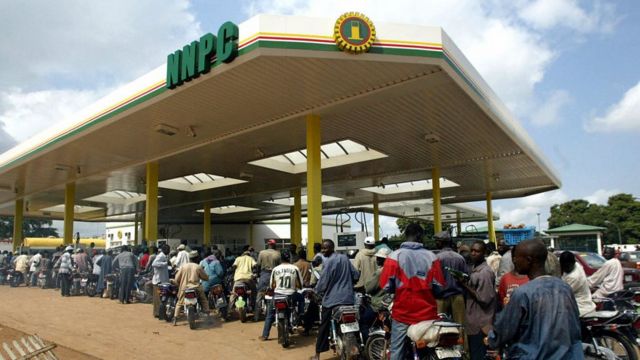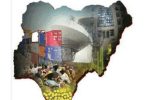Nigeria, known as the ‘Giant of Africa,’ stands as one of the leading oil producers in the world. However, despite its significant natural resources, Nigeria’s energy sector faces numerous challenges. One such challenge is the fuel subsidy program, a governmental policy intended to make petrol affordable for every Nigerian. While this policy has been hailed as a way to promote economic stability and consumer protection, it has also been subject to criticism due to its financial implications and inherent systemic issues.
Understanding the Fuel Subsidy
Fuel subsidy in Nigeria is a price control mechanism whereby the government offsets the cost of petroleum products to ensure affordable prices for consumers. Nigeria is a significant exporter of crude oil, but due to a lack of refining capacity, it imports a large percentage of its refined petroleum products.
The government pays the difference between the cost price and selling price to fuel importers, essentially subsidizing the cost. Therefore, a fuel subsidy reduces the price of petrol for the average Nigerian, which, in theory, is a sound approach to aid those with lower incomes and keep the cost of living manageable.
Also Read- The Influence of Nigerian Traditional Medicine on Modern Healthcare Practices
Benefits of the Fuel Subsidy
On the surface, a fuel subsidy seems like a benevolent move by the Nigerian government to alleviate economic pressure on its citizens. By reducing the price of petrol, the cost of transportation is consequently decreased, and, by extension, the prices of goods and services are affected positively. This mechanism provides a form of economic relief, particularly for lower-income earners who might be hit hardest by high fuel prices.
The Downside of the Fuel Subsidy
While the benefits are tangible, the fuel subsidy policy in Nigeria is not without its problems. The country spends a significant proportion of its revenue on subsidies, which could have been invested in other critical sectors such as healthcare, education, and infrastructure.
Moreover, corruption and inefficiencies in the management of the subsidy program have raised serious concerns. Fuel importers can inflate their costs, profiteer from the subsidies, and even smuggle cheap fuel to neighboring countries where prices are higher. This corruption and lack of transparency have created an environment where a policy meant to help average Nigerians is instead benefiting a select few.
The Way Forward
There is a growing consensus among economists and policymakers that Nigeria needs to reform its fuel subsidy policy. A common suggestion is to gradually phase out the fuel subsidies and redirect the funds to social programs that directly benefit the public. This strategy, however, needs to be carefully planned and executed to prevent sudden price shocks that would harm the poorest households.
In parallel, investments in domestic refining capacity should be prioritized. Building more refineries would reduce the dependence on imported refined products, and in the long run, decrease the price of petrol without the need for subsidies.
Current Events on Nigerian Fuel Subsidy After Presidential Inauguration
During his inaugural address on Monday, May 29, 2023, President Bola Tinubu announced that the fuel subsidy in Nigeria was set to be abolished. However, he failed to provide a specific timeline or further specifics on this substantial policy shift.
The following day, his team clarified that the plan would come into effect at the end of June, reassuring citizens that the current rush to buy petrol was unnecessary since the policy wouldn’t have immediate consequences.
President Tinubu’s move aims to relieve the burden on government finances. Still, it will unavoidably elevate the petrol price, affecting other prices in the process, particularly as the country is already grappling with high inflation.
In reaction to President Tinubu’s Monday remarks, numerous petrol stations increased their fuel prices, while others ceased selling it entirely. Nigeria’s state-owned oil company, the sole importer of petroleum products, reassured citizens that there was sufficient stock to meet demand.
Despite these assurances, panic-buying ensued, with the majority of citizens fearing a steep hike in petrol prices. Currently, petrol should be sold at a regulated price of 185 naira per litre (32p, 40c). Videos circulating on social media show some filling stations increasing prices by more than 200%.
The situation has affected private bus operators, who are vital to Nigeria’s transportation system, as they found themselves unable to refuel their vehicles. Consequently, many people were left stranded at significant bus stops in Abuja, the capital, and Lagos, Nigeria’s largest city.
Even though Nigeria boasts substantial oil reserves, it lacks sufficient refining capacity to meet local demand. As a result, the nation imports petroleum products sold at a government-set price. However, the subsidy program imposes a substantial burden on public finances. It consumed 4.3 trillion naira ($9.3bn; £7.5bn) last year alone, and a further 3.36 trillion naira has been budgeted for it in the first half of this year.
President Tinubu stated on Monday that continuing the subsidy could no longer be justified, and that the funds would be better utilized for public infrastructure and improving citizens’ quality of life. Yet, the fuel subsidy has traditionally been viewed by many Nigerians as one of the few benefits they derive from the government.
The 2012 attempt to abolish the subsidy led to countrywide protests, prompting then-President Goodluck Jonathan to backtrack on the policy. Currently, a powerful association of petroleum product sellers has voiced its opposition to President Tinubu’s plan, urging the new government to initiate a dialogue before implementing the decision.
Ukadike Chinedu, spokesperson for the Independent Petroleum Marketers Association of Nigeria, was quoted by Nigeria’s Punch newspaper, warning that the move would trigger “galloping inflation and inflict more hardship on the masses”.
Conclusion
The fuel subsidy program in Nigeria presents a paradox. While its original intention was to lessen the economic burden on citizens, in practice, it has instead drained the nation’s resources and been marred by corruption. For Nigeria to unlock its full potential, it must confront these challenging issues head-on, reforming the energy sector in ways that ensure fairness, sustainability, and transparency.








